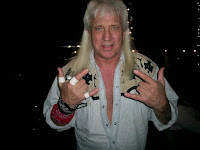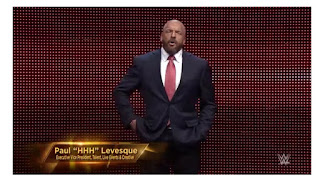“The roots of education are
bitter, but the fruit is sweet” - Aristotle
 The wrestler known
as Sabu is known the world over. His high-risk style was one of the
biggest bricks in the foundation of the influential Extreme
Championship Wrestling.
Sabu would catch a mysterious virus that left him temporarily
paralyzed. A benefit show was held in his honor on his birthday in
2004 to help him cover the medical bills he incurred. The proceeds
were given to him. Five months later, he made a full recovery and
was back in the ring.
The wrestler known
as Sabu is known the world over. His high-risk style was one of the
biggest bricks in the foundation of the influential Extreme
Championship Wrestling.
Sabu would catch a mysterious virus that left him temporarily
paralyzed. A benefit show was held in his honor on his birthday in
2004 to help him cover the medical bills he incurred. The proceeds
were given to him. Five months later, he made a full recovery and
was back in the ring.
12 years later, a
GoFundMe page was created for Sabu. Many people from the pro
wrestling community have asked wrestling fans for their help as Sabu
needs hip surgery. How active Sabu is nowadays is anyone's guess.
But two things are certain. At press time, Sabu's page has generated
over $26,000 - a little more than half of its $50,000 goal. Plus,
the hardcore veteran turns 53 years old this year. And if history is
an indicator, he'll be wrestling after he completely heals from
surgery.
 Ricky Morton was
known in the 80's as a part of The Rock-N-Roll Express tag team with
Robert Gibson. Their double dropkick finisher led to four of their
NWA World tag team titles. Morton fell on hard times after the prime
of his career. Legal fees and back payments to his ex-wife were the
motivations behind at least two benefit shows in 2006 that raised
nearly $2,500. Morton was rearrested a year later for the same
charges and a website to raise his bail was established. Today,
Morton runs his School of Morton and is a WWE Hall of Famer (and
rightfully so). However, it's safe to say he learned some hard
lessons a decade ago.
Ricky Morton was
known in the 80's as a part of The Rock-N-Roll Express tag team with
Robert Gibson. Their double dropkick finisher led to four of their
NWA World tag team titles. Morton fell on hard times after the prime
of his career. Legal fees and back payments to his ex-wife were the
motivations behind at least two benefit shows in 2006 that raised
nearly $2,500. Morton was rearrested a year later for the same
charges and a website to raise his bail was established. Today,
Morton runs his School of Morton and is a WWE Hall of Famer (and
rightfully so). However, it's safe to say he learned some hard
lessons a decade ago. Lance Hoyt has
wrestled all over the world. He is probably one of the few wrestlers
to have held the NWA World tag team championship twice with two
different partners. Hoyt has given his all to pro wrestling. So
much so that he needed to have back surgery recently. A benefit show
was held in his honor to with the proceeds helping him until he “goes
back to work again”. To the best of my knowledge, Hoyt is the only
one of the three men I've mentioned with a college degree (English).
Lance Hoyt has
wrestled all over the world. He is probably one of the few wrestlers
to have held the NWA World tag team championship twice with two
different partners. Hoyt has given his all to pro wrestling. So
much so that he needed to have back surgery recently. A benefit show
was held in his honor to with the proceeds helping him until he “goes
back to work again”. To the best of my knowledge, Hoyt is the only
one of the three men I've mentioned with a college degree (English).
Three men who have
seen things that most indy wrestlers only dream of. They've traveled
places most of the weekend warriors will never go. Three men who
have given their all to a business that can easily take years off of
your life.
I became an active
indy wrestler much later than most people in this business - a month
shy of my 30th birthday. In the years before that time, I
got the first of my college degrees and worked my way up to a
supervisory position at my job. I will say this: I'm not saying
that a college education is a guarantee that you'll be successful in
life. In fact, I learned more by simply living than I ever did in
college. Still, a college education can make a huge difference in
where life takes you.
Recently, I watched
the 2017 WWE Business Partner Summit. Several of WWE's EVP's
(Executive Vice Presidents) took the stage. The Summit was anchored
by Paul “Triple H” Levesque. One of HHH's biggest contributions
to the business has been the creation of the WWE Performance Center.
Most people think that the Performance Center only manufactures pro
wrestlers and performers. However, something HHH said caught my
attention and did not let go.
 "We train these athletes at the
WWE Performance Center to not only become successful performers..
..but also in life. WWE offers advanced education, including the
opportunity to earn a degree, learn new languages, life skill
training – all while using social media platforms to promote WWE,
to promote our partners as well as their own individual brand” -
Paul Levesque
"We train these athletes at the
WWE Performance Center to not only become successful performers..
..but also in life. WWE offers advanced education, including the
opportunity to earn a degree, learn new languages, life skill
training – all while using social media platforms to promote WWE,
to promote our partners as well as their own individual brand” -
Paul Levesque
That's huge.
WWE has transformed
in so many ways over the past two decades since becoming a corporate
entity. Like so many other businesses, they have a program in place
to help pay for employees who seek higher education. In hearing
that, I wished that HHH would have spoken a lot more about WWE's
personal development programs for talent. But understanding the true
purpose of the event, I can understand why that didn't happen.
Several of the sport's greats have learned many a lesson over the
years by simply living life as a wrestler and a wrestler only.
Examples like the ones used at the beginning of this article proves
that those lessons don't always translate into being beneficial
outside of wrestling.
On the smaller
scale of indy wrestling, there are guys and gals who have been active
and have found ways to give back to the sport outside of the ring
like Morton. There are men and women who have left the business
completely after getting their fill for a decade or two who have made
great strides in fields far removed from sports-entertainment.
Then, there are
those weekend warriors whose 20 years in the business will be
celebrated by others and punctuated by their desire to give 20 more
years to the business. Not because wrestling is what they're good
at, but because wrestling is all they're good at.
The moral of the
story is if you are pro wrestler, the ring lights go out on all of us
sooner or later. When that happens, you've got nowhere to go but
home. Make sure you have the knowledge and resources to keep the
lights on there. It makes life after wrestling a whole lot easier.
If you think life
is a work, you should probably work on your life.
Fin.
Comments